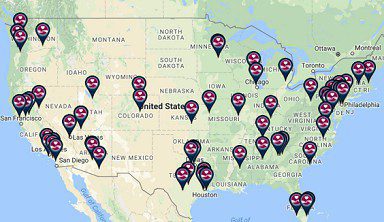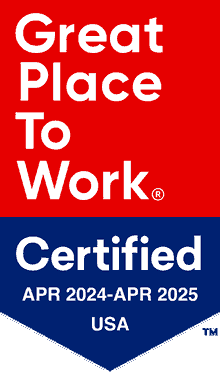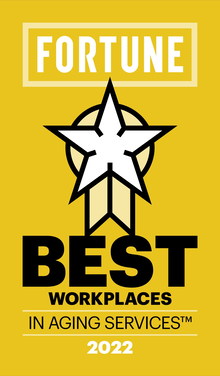Caring for an aging loved one is a privilege — but it can also feel overwhelming. Many family caregivers spend substantial time assisting aging loved ones, with the average is about 20 hours per week (some spending 40 or more hours), according to the Caregiver Action Network. Nearly 70% of family members taking care of senior loved ones living with Alzheimer’s or another form of dementia report feeling highly stressed from the many challenges of coordinating care.
Between doctor’s appointments, medication management, home safety, and supporting emotional well-being, family caregivers often find themselves stretched thin and asking: Am I doing enough? Am I making the right choices?
This is when a Geriatric Care Manager can help. At Amada Senior Care, we’ve seen firsthand how a care professional in this role can be a lifeline not just for seniors, but for family caregivers, too—and serve as an essential partner with an in-home care agency.
What Is a Geriatric Care Manager?
A Geriatric Care Manager (also called an elder care manager or an Aging Life Care Professional) is a specialist trained to support seniors needing long-term care and their families. Many have backgrounds in nursing, social work, gerontology, or counseling. Their job is to assess needs, coordinate services, advocate for the senior, and help guide families to make difficult decisions.
Think of the Geriatric Care Manager as both a navigator and advocate—someone who understands the healthcare system, senior care options, and community resources, uses that knowledge to improve the quality of life for seniors who need long-term care, and ease challenges for family caregivers.
They bring professional knowledge of healthcare systems, senior services, local community resources, and can act as a steady presence in a complex process.
What Does a Care Manager Do?
Here’s a look at how a Care Manager contributes:
- Comprehensive Assessments
They evaluate the senior’s medical, psychosocial, functional, and environmental needs. - Care Coordination
This includes arranging doctor visits, therapy, home health, and ensuring all providers communicate. - Advocacy and Navigation
Helping families understand treatment options, insurance, medications, and legal issues. - Monitoring and Adjusting Care Plans
As needs change, the Care Manager updates the plan and resources. - Crisis Interventions
Stepping in during hospitalizations, falls, or sudden changes in condition. - Ongoing Oversight and Communication
Keeping family members informed, mediating between providers, and ensuring continuity of care.
How Geriatric Care Managers Support Family Caregivers
Often, the family member becomes the unsung “caregiver” — trying to juggle many roles, often with little training, little time, and mounting emotional stress. The Bloomberg School of Public Health reported in 2022 that approximately 24.1 million family caregivers were supporting older adults at home, up from 18.2 million in 2011 — a 32% increase. A Care Manager can be a powerful ally to lighten their load. Here’s how:
- Taking On Complex Tasks
The Care Manager can coordinate multiple providers, manage scheduling, handle paperwork, deal with insurance issues, and communicate with medical teams — tasks that often overwhelm family caregivers. - Emotional Support and Guidance
Caregivers often face guilt, uncertainty, frustration, and burnout. A professional “outside voice” can offer counseling, perspective, reassurance, and helping to reframe difficult decisions. - Education and Training
A Care Manager can teach strategies for managing conditions like dementia, fall prevention, medication protocols, behavioral changes, and communication techniques — giving caregivers more confidence. - Backup Planning and Relief
They help put in place respite care, backup caregivers, or emergency plans so the primary caregiver isn’t left unsupported. - Connection to Community Resources
Many caregivers don’t know what supports exist: support groups, in-home help, adult day centers, financial aid, volunteer services. The Care Manager brings that knowledge and connects the family. - Advocacy for the Caregiver’s Health
The caregiver’s well-being matters too. A Care Manager can help watch for signs of caregiver burnout, encourage self-care, and suggest counseling or health services when needed.
Ways that a Senior Care Manager Support Can Make a Difference
With such demands, even the most loving and dedicated family can feel stretched too thin. A Care Manager can:
- Save time and reduce stress by handling the details
- Provide expert guidance about care options and local resources
- Prevent mistakes (medical, legal, safety)
- Bring peace of mind knowing a professional is watching out for their loved one.
- Support long-distance families by being the “local eyes and ears” to ensure seniors are safe and supported
- Help sustain family caregiving over a longer period
How Amada Senior Care Works with Care Managers
At Amada Senior Care, we understand that every family’s needs are unique. Here’s how we partner with Care Managers to provide an extra layer of support to both senior clients and their family members:
- Implement the care plans designed by the Care Manager
- Provide caregivers who match the senior’s personality, preferences, and needs
- Maintain open communication with the Care Manager and family
- Adapt in-home care plans rapidly as conditions change
- Assist families with Long-Term Care insurance claims management or help identify other funding solutions that help cover care costs
If your family doesn’t currently have a Care Manager, we can help you find qualified professionals we trust.
When Is It Time to Bring in a Care Manager for a Senior Loved One?
It’s worth considering if:
- Your loved one has complex medical issues or specialists
- They’ve recently had hospitalization, a fall, or functional decline
- You’re noticing memory issues or dementia
- You feel drained, stressed, or out of options as the family caregiver
- You live far away and can’t always be on site
- You’re worried about caregiver burnout
Families Working with a Care Manager Can Feel More Confident Making Decisions About Their Senior Loved One
The emotional and physical journey of supporting an aging loved one is rarely simple. It involves medical decisions, emotions, safety, finances, and daily logistics. But you don’t have to walk this path alone.
A Geriatric Care Manager brings knowledge, structure, and calm to the process — and can lighten the load on family caregivers in deeply meaningful ways. At Amada Senior Care, we’re committed to walking this path alongside you: providing compassionate caregivers, and helping you tap into the broader support system you deserve.
If your family is wondering whether a Care Manager could help a beloved elder on the senior care journey, CLICK HERE to find your local Amada Senior Care office. Together, we can explore what’s right for your loved one and build the right plan of care for both your loved one and for you as a family caregiver.



























